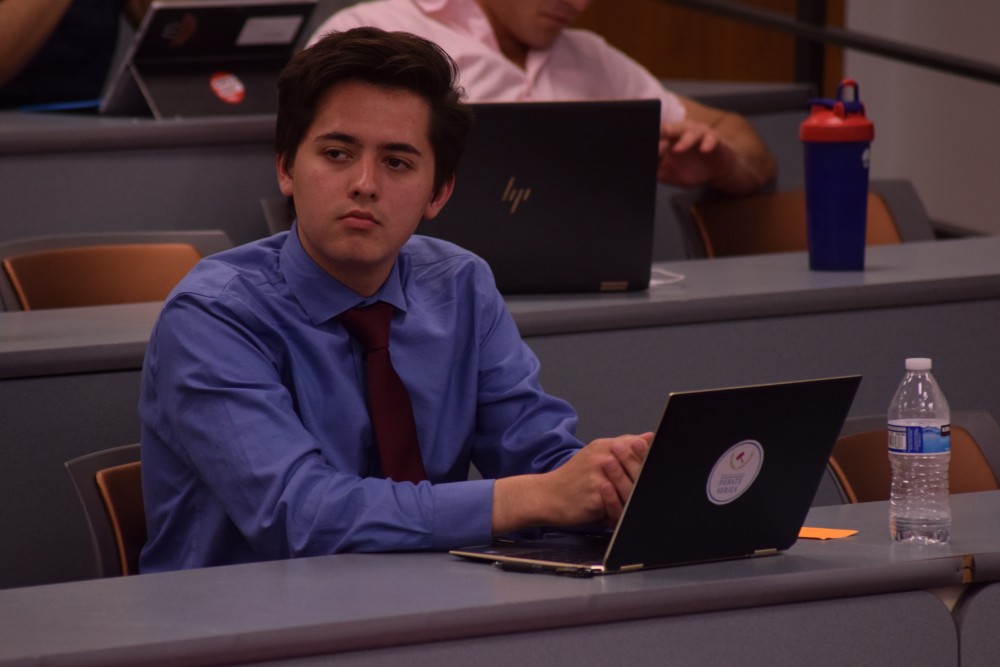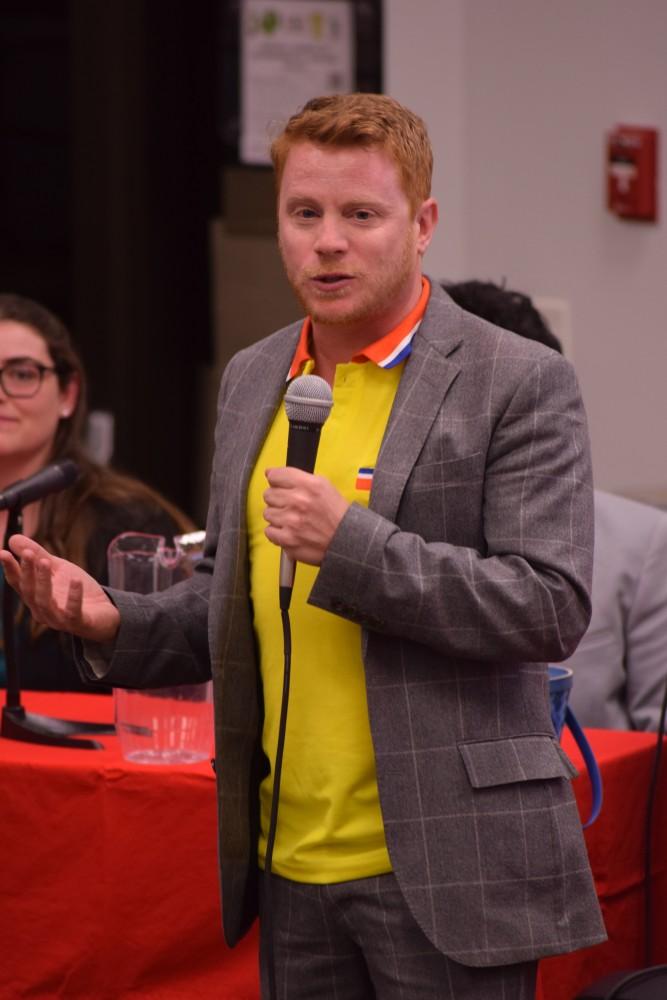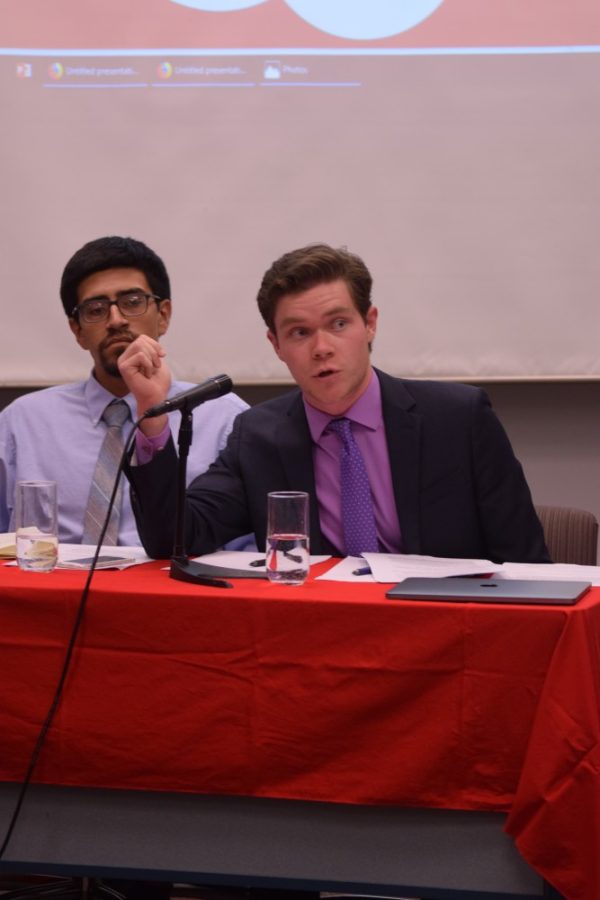“In the United States, students should be guaranteed free tuition to a two-year community/technical college.”
This is what UA Debate Series members debated Tuesday, April 9, at 7 p.m. in the James E. Rogers College of Law.
The moderator and two teams, comprised of two debaters each for affirmative and opposition, took their positions at the front of the room, wearing their formal wear with their speeches prepared and ready to get heated.
Lead intern for the UA Debate Series Vincent Jasso, a sophomore studying political science and public management and policy, explained how he prepares for a debate.
“If I have my speech written, evidence all done, beforehand, I like to just relax a little – maybe listen to some Kanye West or some other pop music of the time to get kind of in the zone. Then, leading up to it, it’s just a lot of nights of staying informed on both sides,” Jasso said.

photo by Chloe Hislop
This debate focused on whether college should be free or not, which particularly appealed to college students.
The affirmative team began, arguing the resolution would promote social mobility, create an even playing ground for low-income individuals and promote democracy with more access to higher education.
The opposition argued back the importance of higher education doesn’t justify making college tuition free because of all the nuances that come with it. They argued community college is already a broken system, and allowing it to be free would put an extra burden on the already low amount of resources. They said the economic structure would not allow these extra students, and it would also create a bigger division between higher education and associate degrees.
One speaker from each team alternated speeches and were allowed opportunities to question the other team and respond. After one set, the debate was opened to questions from the audience, and then they would switch to the next speaker and repeat this pattern.
Juan Torres, a junior studying pre-law, was on the team arguing in opposition. He argued accessibility to education does not solve equality, although he acknowledged the importance of higher education and reducing costs of tuition.
Before the debate, 22 audience members voted for affirmative, 14 undecided and 15 opposed. At the end of the debate, 13 audience members voted for affirmative, 5 for undecided and 29 for opposed.
Jasso participated in four years of debate in high school. He said he used to get adrenaline from debate but has since changed.
“[Now it is] wanting to teach the community about underlying issues and informing them, because I think debate presents itself in a unique position in which we see that there are clear issues in our society,” Jasso said.
Jasso also said he felt debaters must be ready to take either side in debate.
“I think that’s a problem that a lot of debaters have is just being informed on both sides of the issue,” Jasso said. “They will just look at the one side that they’re arguing for. And so I think if you want to be a critical debater, or even critically informed on any issue, you need to look at both sides so that you can have a full scope of everything.”

Photo by Chloe Hislop
Ted McLoof, founder and executive lecturer of the UA Debate Series and senior lecturer in the English department, said this is the UA Debate Series’ first year.
McLoof said he used debate to teach students about research, evidence and support in his English 102 class.
“It seemed to be the thing that really, really got the kids going, and they got engaged without me having to really do anything,” McLoof said.
He said students got into it and asked if the UA had a debate team.
“I was shocked that there was not,” McLoof said.
The UA Debate Series is run through the College of Social and Behavioral Sciences, providing more funding and visibility than student-run clubs.
McLoof said debate is important specifically to our campus at this time.
“We had that rough moment with Border Patrol and the protestors ended up facing, I think, pretty heavy pushback, which I was surprised that, which seemed like an abrupt moment for free speech,” McLoof said.
Upcoming events for UA Debate Series include the Regents’ Cup, a tri-university competition highlighting civil discourse with Northern University of Arizona and Arizona State University, April 26 and a public forum on Nov. 16, 2019.
Interested students can apply online or to learn more about the UA Debate Series visit their website.
Follow Alana Minkler on Twitter









